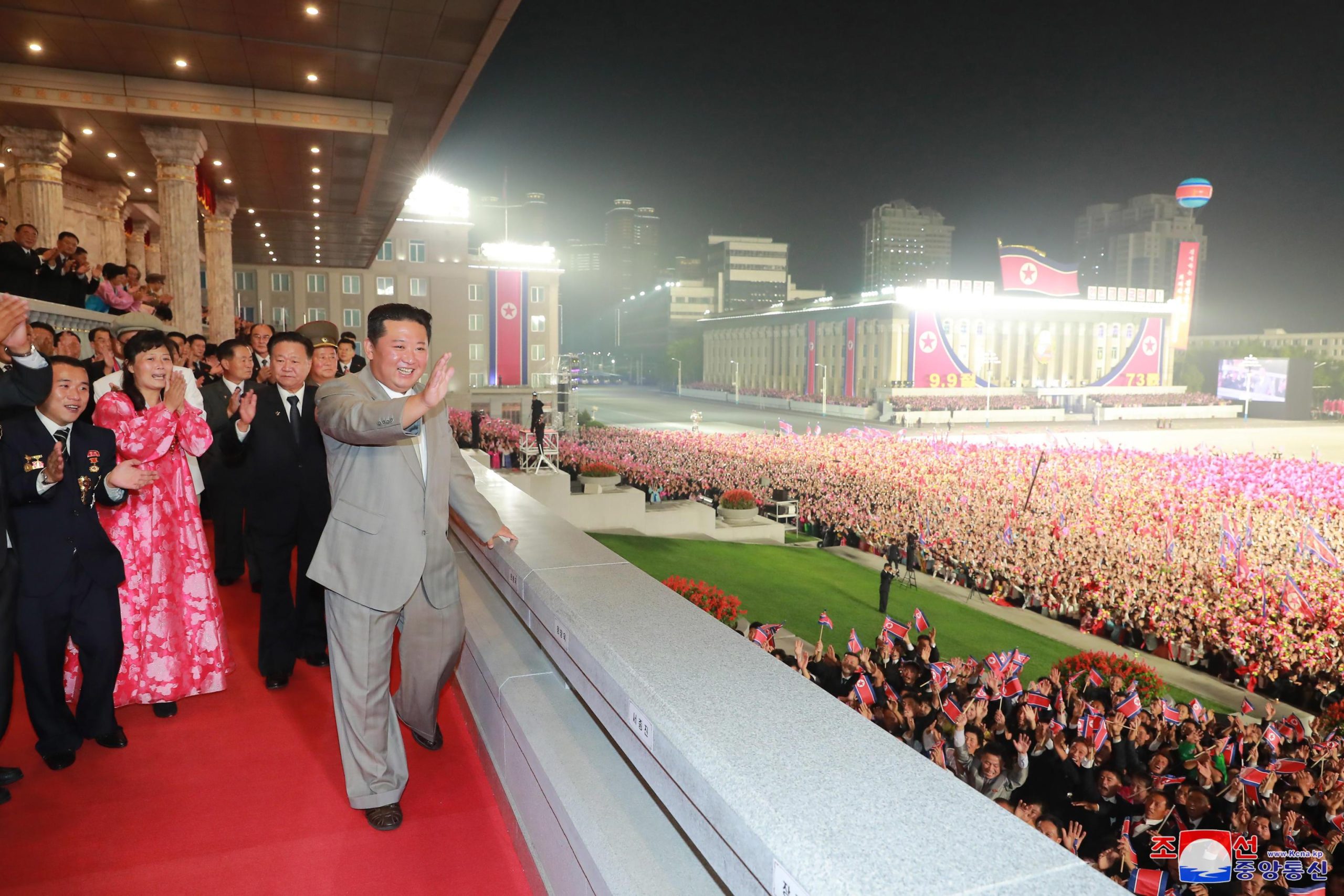About three weeks ago, the international community announced with alarm that North Korea’s main nuclear site, the Yongbyon Research Center, was “suddenly” reactivated. A worrying news, which Pyongyang promptly denied, preferring to lighten it with the spectacular (and very disturbing) images of North Korean troops, who paraded in orange overalls and gas masks for the 73rd anniversary of the country’s founding. This fact feeds suspicions that “rocket man”, as Donald Trump called the North Korean dictator, is preparing for new spectacular headshots.
During the military parade for the 73rd, with the inevitable Workers and Peasants Red Guards (WPRG), a civil defense organization equivalent to a quarter of the population, no new missiles were seen. However, North Korea has been testing two new weapon systems in recent days.
Instead, it was still him who caused the greatest stir and curiosity: the leader of the nation, the iconic Kim Jong Un, who appeared much thinner and more taciturn than ever. Kim Jong Un did not even give the customary speech, celebrated by Ri Il-hwan, one of the many forgettable and replaceable secretaries of the Communist Party.
The pandemic had relegated the issue of Pyongyang’s nuclear threat under the carpet for over a year. But a flash worthy of a Hollywood screenplay – such as the military unit dressed up in gas masks – was enough to remind us that “fat Kim”, even if thin, is capable of anything.
Also, the persistence of international sanctions for nuclear tests and food shortages have forced the North Korean leader to admit that the economic situation in North Korea is “problematic”. Although North Korea has not officially registered any cases of virus positivity, the significant increase in the annual death rate and the persistence of Covid restrictions tell another truth. Nonetheless, the “mass destruction” missile program continues.
“The last test dates back to last March, when Pyongyang launched two short-range ballistic missiles into the sea, mainly to probe the reaction of the newly installed American president, Joe Biden”, as points out Franco Jacch, security, and defense expert. “But between the last 11th and 12th September, North Korea successfully tested a new long-range cruise missile, defined by the regime’s media as “a strategic weapon of great importance”. Now, the use of the word “strategic” normally implies the transport of a thermonuclear warhead. Only a few countries in the world have them. This weapon system would now provide North Korea with the theoretical ability to target up to 1,500 kilometers. “
It should be recalled that the UN Security Council sanctions specifically prohibit Pyongyang from testing ballistic missiles. But «no violations have been committed. The development of a long-range cruise missile could, if anything, represent further challenges for South Korea’s missile defenses». Seoul, in fact, anticipated the challenge by a few hours and in turn launched two missiles from a submarine.
An experiment planned for months, but that President Moon Jae-in wanted to reiterate that their technological capacity “is sufficient to respond to the provocations of the North”, urging the country to continue on the path of the arms race” to overwhelm Kim-Jong Un’s power».
The tepid American reaction to the test of the new North Korean missile clashes with the certainties of Pakistani sources, according to which Pyongyang already has full nuclear capabilities. And this, given the rise in temperature in the Pacific, does not bode well. Especially after Biden offered Australia nuclear-powered submarines. The move broke an international taboo: until now no nuclear power had ever sold this technology to a non-nuclear country. Furthermore, the war agreement between the three great Anglo-Saxon countries is read by China as a clear encircling maneuver against it. The Biden administration has in fact declared China as its “enemy number one”. And it has also struck in the battleground where Beijing is weakest: the submarine nuclear force.
This again puts Kim Jong Un at the center of the Asian scene, thanks to the fact that today China could decide both to help support and arm North Korea (not caring about detente with the South), and to use Pyongyang and its wacky leader as an agent provocateur in the geopolitical risk of the Pacific.
In this cold war in the Pacific, the element of greatest instability and uncertainty is precisely the controversial personality of the young dictator. Just to give an example, the news of a North Korean mother who risks ending up in a prison camp for having saved her children from a fire, without having bothered to save the portraits of the country’s leaders, has aroused indignation. The North Korean state requires, in fact, that the paintings of the three great leaders of the country be exhibited in every house: Kim Jong-il, Kim Il-sung, and their descendant and current supreme leader.
Grotesque as it may be, this story – which comes from Onsong County, North Hamgyong province, near the Chinese and Russian borders – says a lot about the Communist Party’s view of its role. Yet, according to Iacch, “it should never be forgotten that the Kim dynasty is dangerous, but certainly not stupid. Its elite, however criminal, does not seek martyrdom or posthumous glory in some bunker. The Kims have always longed for international respect and, above all, try to survive. That international respect obtained by Pakistan, for example, is however based on the recognition of nuclear power, so as to reset relations with direct antagonists such as South Korea and the United States».
On the other side, however, the policy of a “free and open Indo-Pacific” that today links Australia, the USA, the United Kingdom and Japan, not only corresponds to the new American strategy in the region but is an element that raises the stakes in-game in the challenge for the control of the seas. Therefore, if on the one hand, the strategic alliances in the Pacific are becoming more and more clear and marked, the red button in the hand of an unstable leader is the extra weapon that China can play at any time.
Translated by Carol Simonetti


